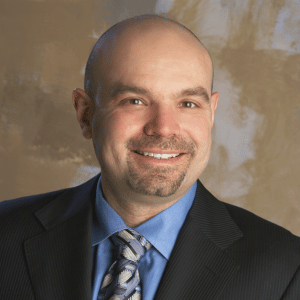Dr. Gabel strives to seek holistic solutions for hair loss patients and incorporates both surgical and non-surgical treatment plans into his  practice. No two patients are ever completely identical and every individual must be evaluated on a case-by-case basis. Dr. Gabel is always careful to evaluate the efficacy of treatment options as they arise and only adopts them for his patients after clinically verified results can be obtained.
practice. No two patients are ever completely identical and every individual must be evaluated on a case-by-case basis. Dr. Gabel is always careful to evaluate the efficacy of treatment options as they arise and only adopts them for his patients after clinically verified results can be obtained.
A minority of men who use finasteride for male pattern hair loss have reported sexual dysfunction after discontinuing the drug. Researchers have sought to identify the causes behind these alleged symptoms, and whether or not finasteride was the actual culprit responsible.
What Research Has Found
Finasteride is used to treat men with benign prostatic hyperplasia (BPH), a non-cancerous increase of the prostate gland, and androgenetic alopecia, more commonly known as male pattern baldness. Androgenetic alopecia occurs largely due to genetics and the male hormone dihydrotestosterone (DHT).
As part of the recent study, researchers compared the symptoms of finasteride users who complained of having sexual dysfunction with  finasteride users who did not report having any sexual dysfunction, and with individuals who did not use finasteride at all.
finasteride users who did not report having any sexual dysfunction, and with individuals who did not use finasteride at all.
Research monitored subjects between the ages of 18 to 50, and who had used finasteride for 7 days or more but who had abstained from use of the drug for the past 4 months. Some patients reported the development of symptoms after ingesting just a few doses of finasteride, while others developed sexual symptoms after months or years of finasteride use.
The second group had men aged 18 to 50, who had used finasteride for hair loss but did not show sexual symptoms after discontinuation. The third group consisted of men aged 18 to 50 years, who had never used finasteride nor had any sexual symptoms.
The researchers did not include men over 50 since these sexual symptoms can often arise on account of age-related factors. Men who reported symptoms of depression before using finasteride were excluded from the study so as to not skew the results.
The study was careful to perform a comprehensive assessment of hormone levels using highly specific liquid chromatography-tandem mass spectrometry assays, body composition, mood, affect, and cognitive function. This systematic evaluation of men who reported persistent sexual symptoms after discontinuation of finasteride therapy for hair loss found no evidence of androgen deficiency. Additionally, the bio-indicators of androgen activity such as hair growth, acne and sebum production, hematocrit, prostate-specific antigen (PSA) levels, indicators of prostate cancer, and lean body mass were similar across all three groups.
The research data leads to the conclusion that the men who had previously used finasteride and who later reported having sexual dysfunction could not assign their symptoms to androgen deficiency.
Finasteride and Depression
 The men in the first group had moderately severe depression. The men in these groups who were symptomatic and finasteride users also displayed higher levels of negative effects but manifested lower levels of positive effects compared to men who were considered healthy.
The men in the first group had moderately severe depression. The men in these groups who were symptomatic and finasteride users also displayed higher levels of negative effects but manifested lower levels of positive effects compared to men who were considered healthy.
The study could not find any correlation between these symptoms to finasteride since their depression could have been a psychological result of experiencing hair loss.
Due to the complex nature of the study, a causal relationship between prior finasteride use and persistent sexual symptoms, mood changes, or cognitive complaints cannot be conclusively reached at this time.
The research did suggest that the symptoms of depression and past finasteride use could be purely a coincidence or that patients with a depressed mood may have caused the symptoms of sexual dysfunction. It is still not sufficiently understood as to why only some of the observed finasteride users experienced persistent sexual symptoms and/ or mood changes.
The clinical significance of the study was that it actually showed that symptomatic finasteride users, which is to say the users who complained of sexual dysfunction, were not likely to benefit from androgen-based treatments, including testosterone, DHT, or any other sex hormone, since the patients did not show any androgen deficiency, enzyme inhibition during conversion of testosterone to DHT, or androgen insensitivity.
Finasteride Remains Effective For Most Men
Despite concerns surrounding alleged side effects, finasteride remains the most clinically tested FDA-approved treatment for male pattern hair loss.
Since men suffering from male pattern hair loss have a higher risk of depression and sexual dysfunction when compared to the general population, physicians suggest looking out for a history of depression, and sexual dysfunction before starting the treatment.
Always consult a licensed physician before beginning any new prescription medication regimen.
Contact The Gabel Hair Restoration
To learn more about hair loss and the latest medications and the latest techniques in hair restoration and hair transplant surgery, contact our Hair Transplant Portland surgery center today. Our team at Gabel Hair Restoration looks forward to your visit and discussing these matters with you in greater detail.
